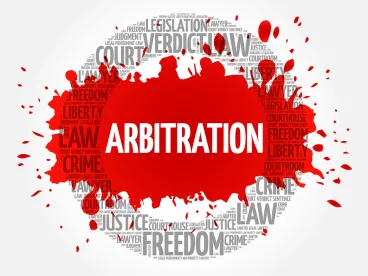In January 2019, the U.S. Supreme Court issued a decision confirming the broad power of arbitrators and the strict enforcement of arbitration agreements. In a unanimous decision authored by Justice Kavanaugh, the Court in Henry Schein, Inc., et al. v. Archer and White Sales, Inc., 586 U.S. – (2019) rejected the “wholly groundless” exception to arbitrability that had been adopted by several circuit courts and found that courts may not override an agreement to have an arbitrator decide questions of arbitrability. In short, courts may not override a contract delegating to arbitrators the question of whether a claim must be arbitrated or litigated.
Certain federal courts have held that a dispute is not subject to arbitration if the argument in favor of arbitrability is “wholly groundless.” To be “wholly groundless,” there had to be no legitimate argument that the arbitration clause covered the dispute. IQ Products Co. v. WD-40 Co., 871 F.3d 344, 350 (5th Cir. 2017). The “wholly groundless” exception was a deviation from the established rule that parties to an arbitration agreement may contract to have the arbitrator decide the threshold issue of whether a dispute is subject to arbitration. In recent years, a significant split among circuit courts of appeals developed, with four circuits adopting the “wholly groundless” exception and two circuits rejecting it.
The dispute in Henry Schein arose from a distribution agreement for dental equipment. The distributor sued the manufacturer, alleging violations of antitrust laws and seeking both money damages and injunctive relief. The parties’ distribution agreement contained an arbitration clause that included a parenthetical that said, in relevant part, “(except for actions seeking injunctive relief).” The distributor filed suit in federal court, arguing the dispute was not subject to arbitration because it involved injunctive relief, and the manufacturer’s arguments to the contrary were “wholly groundless.”
In his first written opinion for the Court, Justice Kavanaugh portrayed the issue as a straightforward application of the text of the Federal Arbitration Act (FAA) and Supreme Court precedent. The opinion quotes Section 2 of the FAA, which provides: “A written provision in . . . a contract evidencing a transaction involving commerce to settle by arbitration a controversy thereafter arising out of such contract . . . shall be valid, irrevocable, and enforceable. . . .” Under the FAA, he wrote, “arbitration is a matter of contract, and courts must enforce arbitration contracts according to their terms.” Slip Op. at 4.
The opinion also rested heavily on three prior Supreme Court decisions: First Options of Chicago, Inc. v. Kaplan, 514 U.S. 938 (1995); Rent-A-Center, West, Inc. v. Jackson, 561 U.S. 63 (2010); and AT&T Technologies, Inc. v. Communications Workers, 475 U.S. 643 (1968). In First Options and Rent-A-Center, the Court confirmed that parties can agree to arbitrate “gateway” questions of “arbitrability,” such as whether the parties have agreed to arbitrate or whether their agreement covers a particular controversy. 514 U.S. at 943; 561 U.S. at 68-69. In AT&T Technologies, the Court held that courts may not rule on the merits of a claim assigned to an arbitrator “even if it appears to the court to be frivolous.” 475 U.S. at 649-50. The latter rule, Justice Kavanaugh wrote, “applies with equal force to the threshold issue of arbitrability.” Slip Op. at 5.
In its defense of the “wholly groundless” exception, the distributor argued the exception “is necessary to deter frivolous motions to compel arbitration” and “it would be a waste of parties’ time and money to send the arbitrability question to an arbitrator if the argument for arbitration is wholly groundless.” Slip Op. at 7-8. The Court, however, was unpersuaded by non-textual policy arguments. “The short answer is that the [FAA] contains no ‘wholly groundless’ exception, and we may not engraft our own exceptions onto the statutory text.” Id. at 7. The Court also recognized that even in the case where reasonable minds could disagree on the issue of arbitrability, the arbitrator will make the decision so long as it is “clear and unmistakable” that the parties delegated such determination to the arbitrator in the agreement, writing that it “is not unheard-of for one fair-minded adjudicator to think a decision is obvious in one direction but for another fair-minded adjudicator to decide the matter in the other way.” Id. at 6-7.
The Court remanded the case to the Fifth Circuit to determine if the parties’ agreement did, in fact, delegate questions of arbitrability to the arbitrator, where the parties’ arbitration clause stated that “any dispute arising under or related to this Agreement” shall be arbitrated. The courts will now decide whether this common contract language is broad enough to capture the basic question of arbitrability of a dispute.
The Henry Schein decision is another in a string of Supreme Court decisions confirming the broad scope of the FAA and the enforceability of arbitration agreements. Last year, in Epic Systems Corp. v. Lewis, 138 S. Ct. 1612 (2018), the Court held that arbitration agreements that waive class action procedures are enforceable. Other decisions have confirmed the enforceability of arbitration provisions in credit card agreements and the preemption of state laws prohibiting agreements to arbitrate personal injury cases. See CompuCard Credit Corp. v. Greenwood, 565 U.S. 95 (2012); Marmet Health Care Center, Inc. v. Brown, 565 U.S. 530 (2012).
What is the practical takeaway from the Henry Schein decision? It goes back to the contract: an arbitration agreement should clearly state what types of disputes the parties wish to subject to arbitration, including the threshold question of arbitrability. It is now more likely that an arbitrator will decide whether a dispute is fair game for arbitration under the parties’ agreement. If it is important to the parties that certain categories of disputes be excluded from arbitration, then you must expressly prohibit the arbitrator from ruling on those aspects of the dispute as well as all issues of arbitrability. This will help to avoid the possibility of an erroneous threshold decision by an arbitrator.




 />i
/>i
